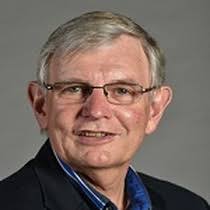Stop voting for a party that has failed to deliver strong economic growth and causes such hardship for millions of South Africans.

1. What is your political background? How did you come to join your political party and become an MP?
I grew in a liberal family, believing in the dignity and worth of all people. I grew up with Zulu folk, hence I am very respectful of their culture and speak isiZulu fluently.
I have been in politics since my student days as president of the SRC at university and then when I was 25, as the Progressive Federal Party (PFP) candidate. I have extensive experience in commerce, in industry and in the services industry. I have Knowledge of resolving labour disputes, having run a large manufacturing company. I occupied senior positions in DA structures, including being a member of both the Provincial Executive Committee (PEC), the Provincial Management Committee (PMC) and the Federal Finance committee. I took the KZN DA accounting system from manual cash book to a fully computerised system that formed the basis of the system now used by the DA nationally. I have a long history of work for the DA and its predecessors. I first stood for election for the PFP in 1977 and lost my deposit. I was a municpal councillor for eight years. I served on the Select Committees of Finance and Appropriations as an MP in the NCOP for five years. I was an MP in the NA from 2014 to 2019 served on SCOPA and then on Finance. I now serve as an MP on SCOPA.
2. What does your job as an MP entail? What do you enjoy about being an MP?
My job entails both parliamentary and oversight work as well as constituency and political work. A lot of time is spent: researching and reading in preparation for parliamentary meetings. sitting in numerous meetings both parliamentary and party. travelling to and from Cape Town – between 16 and 20 hours a week. assisting voters with problems they may have with state departments. drafting private members bills. being fully familiar with legislation introduced in Parliament as well as of the consequences thereof.
3. What are your or your party's aspirations/plans for the Sixth Parliament?
Convince MP’s from other political parties to accept DA policies in legislation and reports. Use parliament to showcase DA policy proposals.
4. What obstacles prevent Parliament from doing its work and how would you fix it?
- The high turnover of new MP’s.
- Limited skills and experience of some MP’s.
- MP’s blindly following the Party line instead of debating merits.
- Relatively low levels of staff (some exceptions) particularly researchers.
- Loyalty of some staff to the ANC instead of being non-partisan.
- Poor system of committee oversight where MP’s get minimal time to interrogate departments and entities.
- Committee time wasted by most MP’s making long ideological speeches in place of asking penetrating questions and follow-up questions.
- Blatant bias towards the ANC by most committee chairs.
- Too much time spent on debates that have no impact on addressing the economic mess in SA.
- The disdain that the cabinet members treat parliament with. This is very evident with most ministers including the Minister of Finance.
- Poor quality of ministerial replies to parliamentary questions.
- Lack of research capacity/staff made available to each MP.
- State department officials providing confidential briefings to ANC members and committee chairs.
- Time wasted on oversight trips which are simply junkets.
5. Which Constituency Office have you been assigned to? Can you give examples of Constituency work you engaged in?
The SA constitution doesn’t make provision for constituencies and thus there are no geographic constituencies. The Van Zyl Slabbert Commission made proposals some 15 years ago about a hybrid system that would provide for constituencies. This has not been implemented. The DA allocates geographic areas to each MP and MPL. I am allocated to the Amajuba district of KZN Most constituency work revolves round:
- assisting residents with official problems.
- oversight over state department facilities such as police stations, hospitals etc.
6. Does Parliament do a good job of holding the Executive to account? If not, what can be done to improve this?
No, it does not. See some reasons given above.
7. Are you happy with the proportional representation system or are you in favour of electoral reform?
See comment about van Zyl Slabbert commission.
8. What can be done to get citizens more interested/ involved in Parliament? Is this an area where Parliament can improve and if so, what recommendations do you have? What are you passionate about? This applies both in political/ professional arena as well as personally?
I think that people are already very interested and involved.
9. What is your message to South Africa?
Stop voting for a party that has failed to deliver strong economic growth and causes such hardship for millions of South Africans.

Comments
Keep comments free of racism, sexism, homophobia and abusive language. People's Assembly reserves the right to delete and edit comments
(For newest comments first please choose 'Newest' from the 'Sort by' dropdown below.)